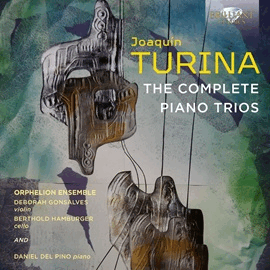Mit diesem Album will der italienische Pianist die Atmosphäre eines Chopin-Salons evozieren, und das gelingt ihm hundertprozentig. In einem ebenso klug wie feinfühlig zusammengestellten Programm fasziniert der Pianist mit sehr persönlichen Interpretationen. Sein dem Belcanto verpflichtetes Spiel bleibt immer herrlich delikat. mit feinsten dynamischen und agogischen Veränderungen. Sehr schön ist seine Art, die einzelnen Stücke ausklingen zu lassen.
Dass die Erste Ballade in diesem Kontext nicht so leidenschaftlich und eruptiv wird wie in anderen Interpretationen ist nur zu verständlich. Aber das Schöne an der Musikinterpretation ist ja die die Vielfalt der Gestaltungsmöglichkeiten. Und Libetto kann der Ballade durchaus interessante Aspekte abgewinnen. Mit betontem Rubato und einer exquisiten Klarheit bringt er durchaus Gefühle zum Ausdruck, wenn auch andere, nostalgischere, tiefschürfendere als sie Argerich, Wang oder Pogorelich viel extremer gezeigt haben.
Fazit: Libetto zeigt in diesen fast 80 Minuten, dass er ein perfekter Poet am Klavier ist. Sein Spiel ist bei weitem nicht so dramatisch wie das von anderen Interpreten, aber seine natürliche und ungezwungene Art ist eine der Stärken dieses Albums, auf dem er übrigens einige Stücken kurze, improvisierte Einleitungen voranstellt.
With this album, the Italian pianist aims to evoke the atmosphere of a Chopin salon, and he succeeds one hundred percent. In a program that is both cleverly and sensitively put together, the pianist fascinates with very personal interpretations. His playing, committed to bel canto, always remains wonderfully delicate with the finest dynamic and agogic changes. His way of bringing the individual pieces to a close is very beautiful.
It is only too understandable that the First Ballade does not become as passionate and eruptive in this context as in other interpretations. But the beauty of musical interpretation is the variety of creative possibilities. And Libetto is certainly able to bring interesting aspects to the ballad. With accentuated rubato and exquisite clarity, he certainly expresses emotions, even if others, more nostalgic, more profound than Argerich, Wang or Pogorelich have shown in much more extreme performances.
Conclusion: Libetto shows in these almost 80 minutes that he is a perfect poet at the piano. His playing is by no means as dramatic as that of other interpreters, but his natural and unforced manner is one of the strengths of this album, on which he precedes several pieces with short, improvised introductions


















